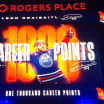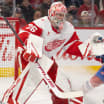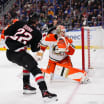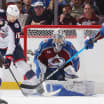Legendary hockey reporter Stan Fischler writes a weekly scrapbook for NHL.com. Fischler, known as "The Hockey Maven," shares his humor and insight with readers each Wednesday.
With the start of NHL free agency Wednesday, Fischler tells the story of Bobby Orr's shocking departure from the Boston Bruins as a free agent 45 years ago.
Orr didn't have all the facts when signing with Blackhawks as free agent
Defenseman deceived by agent, not told Bruins contract offer included ownership stake
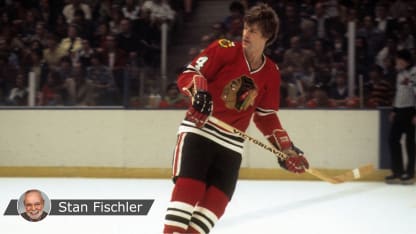
By
Stan Fischler
Special to NHL.com
Looking back into NHL history, one can find Free Agent Frenzies of volcanic proportions and others that fizzled out like a wet firecracker. But to this day, Bobby Orr's decision to leave the Boston Bruins in 1976 is as big a free agent moment as there's been in the League. And that his departure could have been avoided makes it an even bigger story.
It was 45 years ago when Orr -- considered by many historians to be not only the greatest defenseman, but the greatest hockey player of all-time -- left the Bruins as a free agent and signed with the Chicago Blackhawks.
To say the very least, the jaw-dropping move shocked Bruins fans to the very core. Orr had become a Boston sports legend on par with Red Sox outfielder Ted Williams -- an untouchable among untouchables. He had won the Stanley Cup twice with the Bruins, the Hart Trophy voted as NHL most valuable player three times, the Norris Trophy voted as the top defenseman in the League eight straight seasons from 1968-75 and the Art Ross Trophy as the leading scorer in the NHL twice.
"Bobby was the most beloved Bruin of all-time and the very idea that Orr would be anything but a Bruin was absolutely and unequivocally unheard of," said George Falkowski, a former field and features producer for the New England Sports Network. "If any Boston athlete supposedly never would leave Boston, Bobby was it. Or so we thought."
The sequence of events that led to this previously unthinkable free agent departure began innocently enough. His contract with the Bruins expired after the 1975-76 season, when Orr was limited to 10 games because of a knee injury. He left it up to his agent, Alan Eagleson, to negotiate a new deal with Boston.
The Bruins original offer was a five-year deal that averaged $295,000 per season, plus a payment of $925,000 or an 18.6 percent ownership of the team in 1980. Later, after Orr split with Eagleson, he claimed that his representative never told him of the ownership offer.
As negotiations intensified, the issue of Orr's gimpy knees emerged. Unexpectedly, the Bruins decided to reduce their offer. Plus, the Bruins insisted that Orr would have to pass a physical at the start of each season's training camp. Furthermore, only the first season's salary would be guaranteed.
Eagleson, who was one of the game's top power brokers and had founded and ran the NHL Players' Association, was furious.
"There's only one way Orr will ever be back with the Bruins," Eagleson said, "and that's if (club owner) Jeremy Jacobs asks him for another meeting and straightens out the whole situation. Otherwise, he's gone."
Meanwhile, Eagleson singled out two NHL teams -- the St. Louis Blues and Blackhawks -- willing to sign the highest profile free agent to hit the market to that point in NHL history.
As the Bruins grip on Orr loosened, Eagleson revved up negotiations with the Blackhawks until, finally, a deal was struck. On June 8, 1976, Orr signed a five-year, $3 million guaranteed contract, good for $600,000 per season, to be paid over 30 years to minimize taxes.
Bitterness toward Orr and Eagleson was the order of the day in Boston. Even Bruins general manager Harry Sinden -- one of Orr's closest pals -- distanced himself from his former defenseman. Years later, after revelations emerged that Orr did not know about Boston's offer, they reconciled.
Orr's experience with the Blackhawks did not go well. Injuries limited him to 26 games over the next three seasons and his persistent knee issues forced him to sit out the entire 1977-78 season.
Orr retired from the NHL after he played six games in 1978-79 and the Blackhawks named him an assistant to general manager Bob Pulford. It was a sad end to a Hall of Fame career, where Orr scored 915 points (270 goals, 645 assists) in 657 regular-season games and 92 points (26 goals, 66 assists) in 74 playoff games.
"Bobby's move was a classic case of a player who never should have gone the free agent route and left his original team," Falkowski said. "And guess what? Boston fans still don't acknowledge that it happened!"
But it did happen; and it was one of the biggest free agent moments in NHL history.







